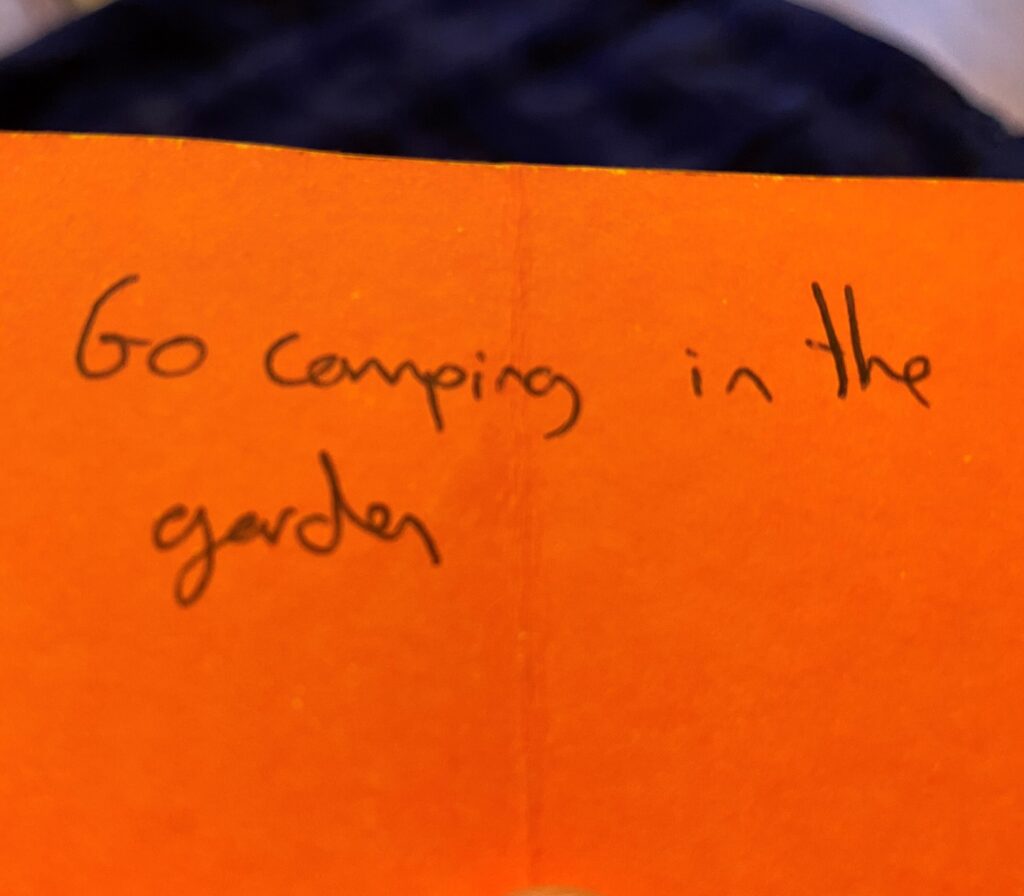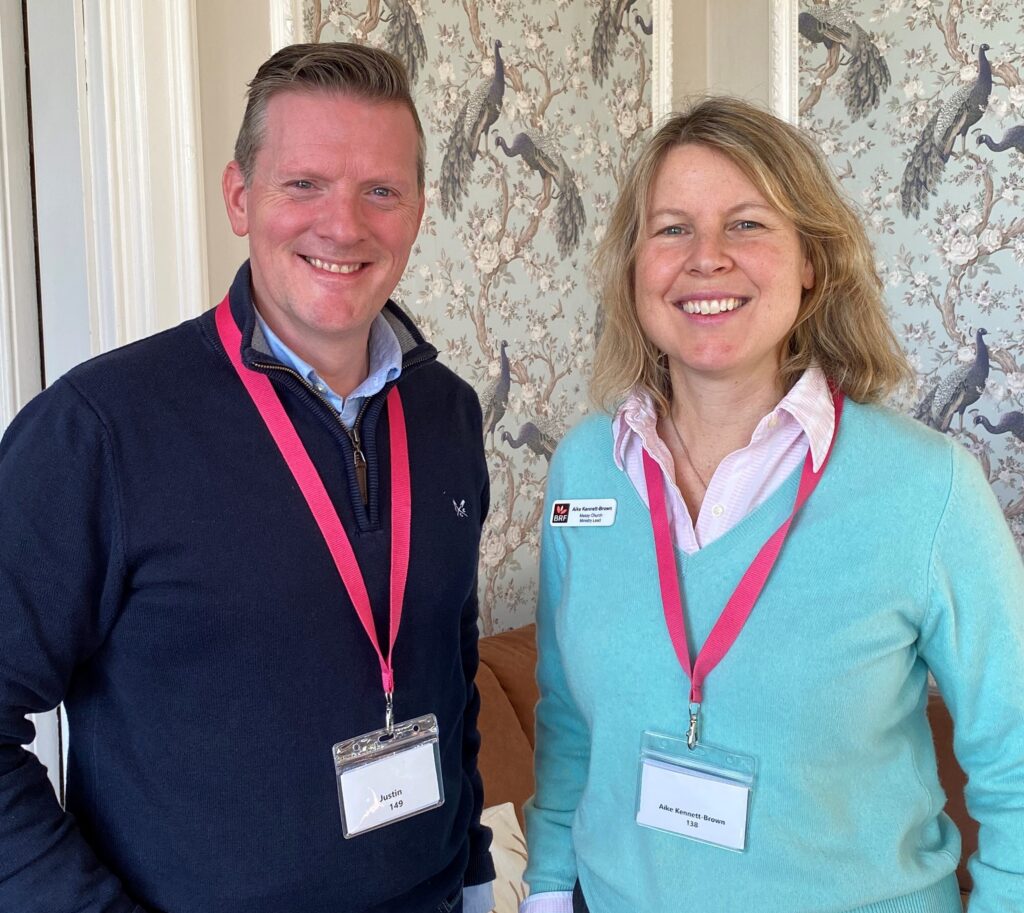Definition: The practice of exchanging things with others for mutual benefit
Last week I joined, via Zoom, a discussion on Being Intergenerational, hosted at St. Mark’s Cathedral, Seattle. Our Messy Church colleague from Australia Chris Barnett, along with Valerie Grisson (author of All Ages Becoming: Intergenerational Practice in the Formation of God’s People, 2023) were encouraging us to think about being more intergenerational in our church settings, as this creates an ideal situation for lifelong discipleship. For those wondering what I mean by ‘intergenerational’, it’s about having 2 or more generations interacting, where they are both physically and relationally present to each other, for example, chatting or doing an activity together, as opposed to being simply present in the same room, but sticking to separate generational groups.
Messy Church has at its core, the value of being for all ages, so in theory is ahead of the game, but our March 2024 survey showed that whilst we do this really well with primary aged children and their parents/carers/grandparents, there is a gap when it comes to teenagers. As children transition from primary to secondary school, in many places, they transition out of Messy Church. We have a choice. Do we just say that Messy Church is only for primary aged children and extended families and do our best to point young people in the direction of youth groups, or do we dig deeper into our ‘for all ages’ value and adapt as our children grow? Or perhaps we need a bit of both?
This is an area the BRF ministries Messy Church team are wrestling with at present. Increasing evidence suggests that young people are more likely to continue their journey of faith, if they are surrounded by an intergenerational mix of fellow pilgrims. Yes, having a group of Christian peers is important, but equally so is having spiritual encouragement from a network of those a bit further along the road, beyond a youth worker on a short-term contract.
Sounds good doesn’t it? But how do we do this well? It starts with who we follow – Jesus. As we become in right relationship with God, how we become better at being intergenerational will start to flow out of who we are as a Christ-centred community and the values we put into practice. Chris Barnett used the word reciprocity. I’m still trying to say it correctly, but in relationships this involves a mutual exchange of support, emotional investment, and love, where everyone can share their needs and there is a willingness to meet the needs of the other person, with open and honest communication. For example, children and young people need the older generations to share their stories of receiving Christ’s joy through pain, so that they may come to know that God is with them for the whole of their lives, not just the good bits. However, adults also need the natural joy, wonder and energy that children and young people bring to be a complete body of Christ. However, our default is for adults to hold the power and it is hard work trying to change this so that there is mutuality (all in this together), equality (theologically all loved equally by God) and reciprocity (all give and receive).
So where do we start? Being more intergenerational starts with US! Begin where you are, and start noticing what’s already there, naming it to bring the good practice to the surface. From here, you can start to nurture and do what you already do but do it in a more intergenerational way.

No sooner had the online lecture finished, I had an immediate opportunity to put my new learning into practice. For my birthday, my son (now at university), set me challenges to do throughout the year. It was winter by the time I pulled out the ‘camp in the garden’ challenge, so that went on the back burner. However, it had been a gorgeous sunny spring day and my 16-year-old daughter said, ‘Come on Mum, why don’t we camp in the garden tonight?’ My middle-aged head was warning me of a sleepless night listening to urban foxes, sirens and aeroplanes in our south-east London back garden. However, the inner child came alive and said, ‘why not?’. Together, we pitched our tent in the dusk, pumped up the Lilo (which stayed inflated all night, much to my relief), and climbed into our sleeping bags. We had a laugh, chat and pray together before falling asleep. This was reciprocity in action. I reflected how the young people in my life constantly take me out of my comfort zone, and my life is enriched for it.
So how will I take this practice into my Messy Church? If you want to be more intentionally intergenerational, one way is to involve the people you want to come, in the planning, preparation and feedback, as well as what happens during a gathering. If you want to see young people in your Messy Church, then gather them to dream and plan with you.

My Messy Church Goes Wild planning team has become a bit thin on the ground, when the teenagers who used to come, graduated from the school. So, we’re experimenting and trying something new. Next week we’ve invited some of our core families to come and help us plan, using this meeting as a discipleship opportunity as we read the Bible passage and pray together and then plan the activities. We’ve had to switch our planning time to be the same time and day that Messy Church meets, and we hope that this will give the families greater ownership and involvement, particularly in a season when volunteers are thin on the ground. We hope it will help us develop the community aspect further, as we meet more frequently with them and deepen relationships.
I wonder..?
Where do you notice intergenerational relationships already happening at your Messy Church?
As you name what you notice, what needs some more nurture?
What do you already do, that could be done in a more intergenerational way?
Aike Kennett-Brown
BRF Ministries Messy Church Ministry Lead
You may also like

Creating Safe Spaces
25th Nov 2024As our media fills up with stories of abuse and coverups within religious organisations, it was very timely that children and family ministry denominational leaders met to discuss ‘Safeguarding’ at the Children’s Ministry Network Conference November gathering at High Leigh Conference centre.

Woman at the Well
3rd Nov 2024After a busy 3 day of leading seminars, networking, and being on the Messy Church stand at Church of Norway conference, I had the opportunity to visit a sauna, called The Well, Oslo. It’s the Nordic region’s largest Spa in Scandinavia, with baths, saunas and spa treatments from all over the world.

Seaside Sojourn
21st Oct 2024It seems that I always get booked to deliver in-person training at seaside locations. This trend continued last weekend, as I headed off to the coastal village of Seaton, Devon.

Our Survey Said…
7th Oct 2024Back in February 2024, Church of England kindly sponsored a survey, completed by 330 Messy Church leaders. This is what we...

